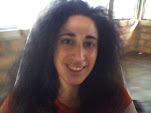An intimidating author, an intimidating-sized book and a very slow beginning. I was wary to go on, but I wanted to start reading classics, and Steinbeck certainly is a classic author. I feared the long descriptions of the geographical and natural area of the Salinas Valley would be too flowery and pretentious for me, but as I read on, it became less flowery and more movingly artistic. This, just like The Stone Diaries, is a multi-generational piece, though the focus is on a few characters, namely one though, Adam Trask. His life is followed completely in it, the book ending with his word, the symbolic “timshel.”
As the title suggests, the concept of fall from grace (more of mankind’s natural tendency to make wrong decisions) is strong. The plot of the entire book is practically summed up by one philosophical chat between Adam, Samuel, the other main character, and Lee, a major character as well. The struggle among siblings, especially brothers, is a patterned problem in the book, and in this part the three men were discussing the story of Cain and Abel. How one kills the other out of jealousy, though still has the power to overcome sin. Lee describes years spent studying those Bible chapters – even learning Hebrew to best comprehend it – the mere fact that these characters would spend such a long while on such a task is so charming. It adds to the believability of the story – and what it comes down to it is one word – timshel – thou mayest.
Lee passionately says “But ‘thou mayest!’ Why, that makes a man great, that gives him stature with the gods, for in his weakness and his filth and his murder of his brother he has still the great choice.” Lee goes on to say further, “But think of the glory of the choice! That makes a man a man. A cat has no choice, a bee must make honey. There’s no godliness there.” Now, I don’t know if I like the reference to “gods” or “godliness,” though I think Steinbeck means to simply emphasize the magnificence of man’s potential. Lee, in the story, is a proclaimed atheist, though I’m not sure about Steinbeck.
As there were triumphs over evil in varying degrees, there too was the devilish character in the book, Cathy. While redemption would have been cinematographically satisfying, this did not happen with her. In the end, she simply surrendered. Which brings me to another satisfying quote in the book: “We have only one story. All novels, all poetry, are built on the never-ending contest in our selves of good and evil. And it occurs to me that evil must constantly respawn, while good, while virtue, is immortal. Vice has always a new fresh young face, while virtue is venerable as nothing else in the world is.” The “evil” of Cathy was vanquished and Steinbeck portrays this as the virtue remaining immortal, while triumphing over evil, but also as sobering that this was but one victory, evil will come again in other ways.
None of the characters followed an archetype of good or evil, none established a mold and stuck with it. What came out of the characters mouths couldn’t always be predicted, but as soon as they said it, it was fitting. In writing such a complete story, Steinbeck certainly didn’t lead the story any which way; the story seemed to lead him. I am eager to read more of his and I know I can pick this up again in a few years and be delighted once more.
Friday, August 8, 2008
Subscribe to:
Post Comments (Atom)

No comments:
Post a Comment